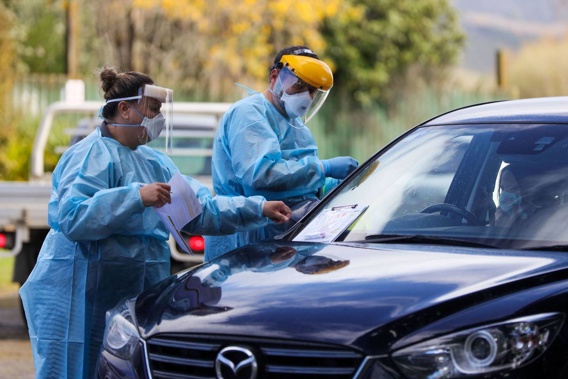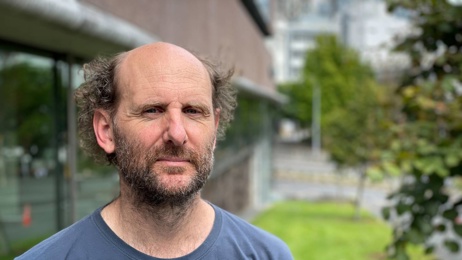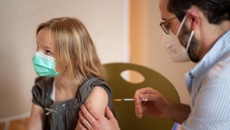
Aucklanders are one day away from heading to the hairdressers, while Covid-19 cases continue to pop up across the North Island.
Yesterday, the country recorded 215 Covid-19 cases in the community and one death.
While most cases are in Auckland, a number of cases were recorded in other regions.
Four new cases were in Northland, 196 in Auckland, 11 in Waikato, one in Bay of Plenty and two in Lakes district. A community case reported in MidCentral on Monday was officially included in yesterday's numbers.
Of the four Northland cases, one in Whangārei was already isolating and there are three new cases in Kaikohe – all four cases have known links.
In Waikato, six of the cases are from Huntly, three from Kawhia, one from Te Kūiti, and one from Ōtorohanga. Five of the Waikato cases have been linked and the remaining six are under investigation.
Of yesterday's 215 new cases, 99 still need to be epidemiologically linked, bringing the total of unlinked cases in the last 14 days to 893.
The latest death brings New Zealand's Covid death toll to 41 since the pandemic hit our shores last year.
The latest death was a patient in their 50s, who was admitted to Auckland City Hospital on November 17.
"Our thoughts are with the patient's whānau and friends at this deeply sad time," the Ministry of Health said.
Of 88 people in hospital, only 19 per cent are fully vaccinated.
Countdown supermarket's vaccine mandate for staff
Countdown will require all 21,000 of its staff to be vaccinated by January 10.
After a two-week consultation and feedback review period, the supermarket giant confirmed yesterday it had decided to require vaccination for all roles across the business.
Kiri Hannifin, Countdown's general manager, corporate affairs, safety and sustainability, said the policy would apply to staff at its distribution centres, stores and support offices.
First Union retail organiser Ben Peterson said a small group of people - fewer than 2 per cent - were affected by Countdown's new vaccine mandate.
He told Newstalk ZB's Kate Hawkesby this morning they were "not hugely enthused" but many were not anti-vaxx - they just hadn't got round to getting the jab yet and the new mandate was giving them the impetus to get it.
It had given some people an impetus but others had been trying to avoid the conversation and now were having to engage. "It's a smaller group of people than you'd think."
The union's approach was to try and avoid anyone losing their job. Some people needed specialist advice while others were happy to get vaccinated after, for example, getting surgery or finishing a course of medication.
But for others it was a more complex conversation, Peterson said.
"People are going to make choices. As long as they're making them on the basis of good and real information, that's people's right."
The union wanted the company to look at whether they could move those people to lower-risk roles or if there were other options available.
And he said with the expectations on supermarket workers now much higher than they were pre-pandemic, it was time to look at better remuneration for them as well.
Fifty-six per cent of those in hospital are unvaccinated, 12 per cent - or 10 cases - are partially vaccinated - less than 14 days; 8 per cent are partially vaccinated for more than 14 days, one person is fully vaccinated for less than 14 days and the vaccination status is unknown for three cases.
As for the number of vaccine doses issued nationwide, New Zealand is now at 91 per cent of those eligible, and 84 per cent for second doses.
Eighty per cent of Māori have had their first dose and 65 per cent have had their second.
And 90 per cent of Pasifika people have had their first doses and 79 per cent their second.
As for vaccination rates of DHBs with active cases, three DHBs still need to reach the crucial 90 per cent first dose mark.
Northland is at 84 per cent for first doses, while the Lakes DHB is 86 per cent for first dose. Bay of Plenty DHB is 2 per cent away from hitting 90 per cent.
The ministry reminded anyone with symptoms no matter how mild to get tested.
"We continue to urge anyone in New Zealand with Covid-19-related symptoms – no matter how mild – to get tested, even if they are vaccinated."
The ministry said it was aware of reports of people concerned about getting tested for Covid-19 as it might affect their immigration status.
"We would like to remind anyone in New Zealand that if you return a positive test, the ministry and your local public health team will work with you to identify and contact people you have been in close contact with," the ministry said.
"If necessary, information about a positive test result may also be shared with emergency services in your area to help them in their response, but it will not be used for immigration-related or enforcement purposes, as outlined on the ministry's website."
Take your Radio, Podcasts and Music with you









